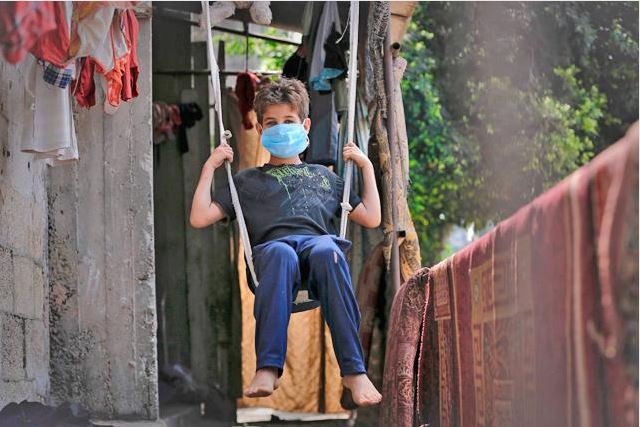- International News
- Web-2020-09-02 | 12:23 am

GAZA CITY, Palestinian Territories — Gaza's Islamist rulers Hamas said Monday they had reached a Qatari-mediated deal with Israel to end more than three weeks of cross-border attacks.
In the latest escalation, Israel has bombed Gaza almost daily since August 6 in response to alleged airborne incendiary devices and, less frequently, rockets launched across the border.
After talks with Qatari envoy Mohammed El-Emadi, "an understanding was reached to rein in the latest escalation and end [Israeli] aggression against our people", said the office of the Palestinian group's Gaza leader Yahya Sinwar.
An Egyptian delegation had been shuttling between the two sides to try to broker the renewal of an informal truce under which Israel committed to ease its 13-year-old blockade of Gaza in return for calm on the border.
The delegation was joined by Emadi, who also held talks with Israeli officials in Tel Aviv.
In a statement, he praised the Hamas leadership for reaching a deal in light of the "difficult conditions of Gaza's inhabitants, especially in view of the spread of the coronavirus".
A Hamas source told AFP there had been "a total halt" to balloon and other attacks against Israel, in agreement with other factions in the coastal strip, home to some two million people.
Fuel supplies were to return and the power station was expected to be restarted from Tuesday, the source said.
A punitive Israeli-imposed ban on fuel deliveries cut electricity to just four hours a day, supplied from the Israeli grid.
Crossing to reopen
COGAT, the Israeli defence ministry unit that oversees civilian affairs in the occupied Palestinian territories, said in a statement that after "efforts to calm the situation", it would "resume the routine activity of the Kerem Shalom Crossing, including the entry of fuel products", starting from Tuesday.
"In addition, the fishing zone of the Gaza Strip will be expanded to 15 nautical miles," it said.
But, COGAT warned: "If Hamas, which is accountable for all actions that are taken in the Gaza Strip, fails to stand [by] its obligations, Israel will act accordingly."
The Hamas source added that work would be allowed to start on the construction of a new power line, while a $30 million Qatari aid tranche for Gaza would be expanded to $35 million, with the difference used to cover public servants' salaries.
Financial aid from gas-rich Qatar has been a major component of a truce first agreed more than a year ago and renewed several times since.
The fire balloons launched in recent weeks were widely seen as an attempt by Hamas to improve the terms of the informal deal.
Sources close to Hamas had said it also wanted other measures to ease living conditions in the territory, including the extension of an industrial zone in the east and an increase in the number of Israeli work permits issued to Gazans once anti-coronavirus restrictions have been lifted.
Meanwhile, Israeli strikes on Syria killed one civilian, three government troops and seven allied foreign fighters, a war monitor said on Tuesday in a new toll.
The Syrian Observatory for Human Rights, which had previously put the toll from Monday's strikes at five, said Iran-backed paramilitary fighters were among those killed in the attack.
The Britain-based monitor said the strikes hit Syrian army positions south of Damascus as well as positions belonging to Iran-backed paramilitaries, including fighters of the Lebanese Hizbollah movement, in the southern province of Daraa.
The observatory said it could not confirm if Hizbollah fighters were among those killed.
Late on Monday, the Syrian state news agency SANA reported that "the Zionist enemy carried out a strike... on some of our military positions south of Damascus and our air defences confronted them".
"The Israeli attack led to two martyrs being killed and seven soldiers being wounded," the source said, adding the fire had came from the direction of the Israeli-occupied Golan Heights.
It later said that one civillian was also killed in the attack.
Israel has carried out hundreds of raids in Syria since the civil war broke out in 2011, targeting Iranian and Hizbollah forces as well as government troops.
The Israeli forces rarely acknowledges individual strikes, but said that on August 3 it had used fighter jets, attack helicopters and other warplanes to hit Syrian military targets in southern Syria.













